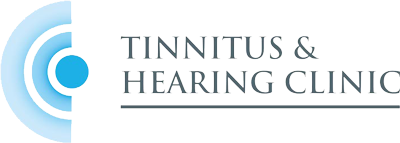Until early 2012, lettings business owner, Paul Hambledon would have described his tinnitus as ‘mild’. It was a single tone, usually in his left ear, which he could hear at night when he went to bed.
However, in February that year, he was using a soda maker when the bottle exploded, covering him with water and leaving him deafened for several hours. His GP diagnosed burst blood vessels in the membranes of both ears and whiplash from throwing his head back suddenly in response to the explosion. However, the biggest impact of the accident was on the volume of his tinnitus – which Paul described as becoming about 10 times louder and more intense.
“I could hear the tinnitus over general conversation, traffic noise, TV and radio, and I found myself asking for things to be repeated. I found getting to sleep extremely difficult. I’m told I became irritable and short-tempered, which affected my time with my children and also meant I was less tolerant at work.”
Paul tried seeking help through his GP and local NHS trust, but was told that the minor degradation in the upper frequency of his hearing was not sufficient to warrant hearing aids. He was told that he would need to learn to live with his tinnitus and manage it through relaxation techniques.
In mid-2012, Paul’s wife discovered The Tinnitus Clinic website, and Paul booked an appointment in Harley Street for the end of August. At the assessment appointment, an Audiologist was able to explain to Paul that he had bilateral tonal tinnitus. His tiredness and lethargy were linked to the fact that the continuous high-pitched tinnitus was preventing him getting sufficient restorative sleep.
As a first treatment option, Paul decided to try relaxation techniques while listening to music and a CD of ‘spectrally shaped sound’ given to him by the Audiologist. While this had a masking affect on the tinnitus, it wasn’t reducing the symptoms, and Paul would still wake up during the night and find it difficult to go back to sleep.
In September, Paul returned to the Clinic to start Acoustic CR® Neuromodulation therapy under Audiologist Rekesh Patel. The treatment appealed because it was based on evidence from trials in Germany, and the fact that there was a further trial underway in the UK. He chose to use the payment plan option to spread the cost over a number of months.
Paul was given an NTR Neurostimulator device which had been configured to target his specific tinnitus tone. Patients undergoing treatment need to wear this device for 4-6 hours every day. Paul finds it easiest to clip his device to his belt in the morning and put in the headphones as he headed off to work.
Within two to three months, Paul noticed the pitch of his tinnitus was changing, going up and down, while the intensity stayed about the same.
“My audiologist, Mr Patel, was happy because it showed the Neurostimulator was having an effect, and that bodes well for moving ahead with the treatment. Six week later, I was starting to sleep through the night and two to three months after that, I was noticing a definite reduction in intensity. It was probably Christmastime 2012 when I felt I was back to my normal life.”
When we spoke to Paul in July 2013, he said that his tinnitus was now only 4-5 times louder than it had been at the start of 2012 (compared to 10 times louder after his accident). He was still using the Neurostimulator regularly, and said that his quality of life was greatly improved.
“Generally now I sleep through the night, unless I’ve had a really, really stressful day. My energy levels have increased. I’m not stressed at home, with my partner, with the children so life has much improved. I’m more able to focus on conversations. I don’t hear the tinnitus above the radio, the car, street noise, the kids and so on. Now it’s only when I stop and there is a quiet period that I recognise it’s still there.”
Through work, Paul recently met a young musician who had problems with tinnitus. He noticed the device on Paul’s belt and asked ‘Does it work?’
“I said, ‘Absolutely it’s worked for me. I’d recommend going and have the assessment, because the Clinic can then advise you on whether you are suitable. If you are, then I would say go for it.’
I had been given nothing else, no nope, no encouragement from anywhere else with regards to the tinnitus.”
“The Tinnitus Clinic have a very high success rate and the treatment fits easily into my life. That’s why I would recommended Acoustic CR® Neuromodulation to others.”


